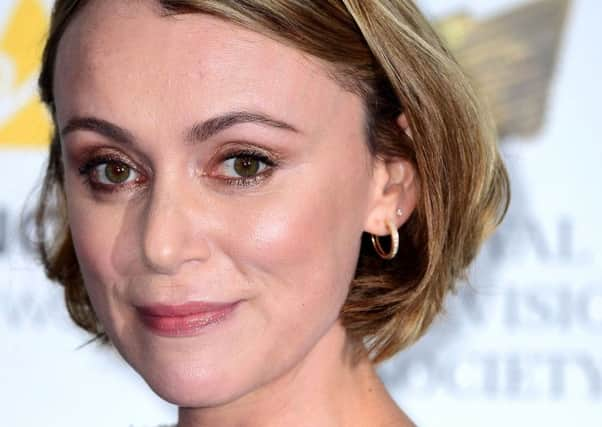Anthony Clavane: The diversity of modern British life is something to celebrate


I don’t know about you, but I need my Sunday night drama fix. Over the years, many gripping, wonderfully-acted television series have helped alleviate the pre-Monday blues. Sherlock and The Night Manager – all classics, I would argue, managing to both entertain and stimulate the brain cells before having to face the slings and arrows of a fresh working week.
Bodyguard, which attracted almost seven million viewers when it was launched last Sunday, did not disappoint. It had everything you could wish for in a Sunday night drama. Edge-of-the-seat thrills, political manipulation, a steamy tryst. And several strong female leads.
Advertisement
Hide AdAdvertisement
Hide AdI only mention this last point because there has been quite a fuss made of the fact that Jed Mercurio’s new thriller featured so many women in positions of power.
To be honest, I didn’t notice anything “amiss” until I checked into Twitter to discover a backlash by the Britain’s-going-to-hell-in-a-handcart brigade. Apparently those commies at the BBC have lost the plot again. The loony-left elite’s obsession with diversity knows no bounds. “In Britain today,” as Jon Holbrook moaned in the online magazine Spiked, “if you are non-white, female, Muslim or gay you are favoured. If you are white, male, Christian or straight you are unfavoured. Worse still, if you challenge the idea that society ought to favour certain identities and unfavour others, then you are likely to be shunned and driven from polite society.”
“Where are all the guys?” asked one chap after watching Bodyguard’s first episode. Another seemed astonished that the Home Secretary had been played by Keeley Hawes, the head of the Metropolitan Police’s Counter Terrorism Command by Gina McKee and the chief superintendent by Pippa Haywood. “Too many unconvincing women,” posted someone else. “How unrealistic,” a number of other Tweeters pointed out.
Unrealistic? It would be interesting to know what former Home Secretary Amber Rudd, the real-life Metropolitan Police Commissioner Cressida Dick and the ex-head of Britain’s domestic security service, Eliza Manningham-Buller, thought about such fanciful casting.
Advertisement
Hide AdAdvertisement
Hide AdMercurio declared himself to be baffled by the accusation that he was making a political point about identity. “It puzzles me that something I’m doing, which comes so naturally to me, seems so odd to other people,” he said. “I think they’re wrong and I’m right. It’s very odd to say that it’s weird for women to be portrayed in these roles.”
The oddest aspect of Bodyguard, for me, was the sight of a train arriving on time at London Euston. Now that is bonkers.
It’s not as if this is a particularly new development. Hawes and McKee – along with Sarah Lancashire, Suzanne Jones, Lesley Sharp, Olivia Colman, Jessica Hynes, Jodie Whittaker and Rebecca Front – have been playing strong female leads in dramas for more than a decade.
And we should remember that there are plenty of areas in TV where there is still a glaring gender imbalance. A new report has revealed that the proportion of programmes directed by women has fallen in the past four years.
Advertisement
Hide AdAdvertisement
Hide AdAnd what about University Challenge? The few women who appear on the quiz show – such as Gail Trimble in the 2009 series, Hannah Rose Woods, captain of the 2015-16 winning team, and, most recently, Katharine Perry – tend to suffer online abuse. “I worried about how taking part in the programme might impact my career,” explained Woods, “when Google searches started returning hundreds of articles about my appearance and random marriage proposals I’d received from strangers, instead of my academic research.”
As a straight white male, I can’t see why making shows which reflect the diversity of modern British life is such a terrible thing. Or why casting women as high-profile characters in a Sunday night drama is considered to be so outrageous. Whatever next? Helen Mirren as The Queen? Or, even more ridiculously, taking on the unrealistic role of a female Prime Minister?